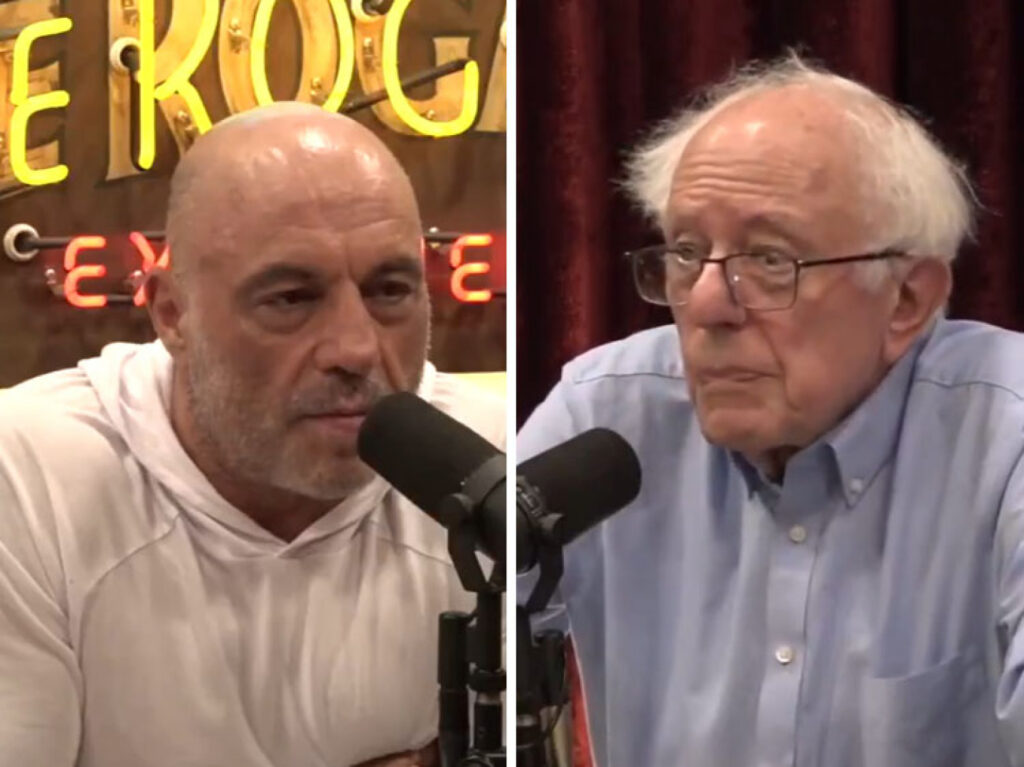Joe Rogan didn’t pull any punches on a recent episode of The Joe Rogan Experience.
Sitting across from U.S. Senator Bernie Sanders, Rogan tossed out a striking two-word answer for solving America’s deep-rooted issues: “fewer losers.”
But he wasn’t talking about name-calling—he was pointing at the systems that create failure in the first place.
His point? If America truly wants to “make itself great again,” it should start by giving people a fair shot.
“How do you make fewer losers? You stop stacking the deck against them,” Rogan said, clearly frustrated with how things have been going for everyday people.
Education as the Foundation of a Stronger Nation
For Rogan and Sanders, the conversation kept circling back to one essential solution: education.
Rogan argued that real, accessible education could transform lives—and by extension, the entire country.
He believes public education should be free, not just at the elementary or high school level, but all the way through college.
“If universities were publicly funded,” Rogan explained, “we’d all benefit. Higher GDP, more successful people—it’s a win-win.”
Sanders agreed wholeheartedly, emphasizing the need to have the best-educated workforce in the world.
To him, that’s not radical—it’s just common sense.
Generations Left Behind by a Broken System
Rogan also called out the stagnation in many U.S. communities, especially in cities that have seen little progress in decades.
“These cities have been the same for generations,” he said, pointing to systemic issues rooted in Jim Crow laws and redlining—both of which blocked opportunities for minority families for years.
He likened political inaction to a “beach ball” that keeps getting tossed around but never dealt with seriously.
For both Rogan and Sanders, the problem isn’t just history—it’s that the country refuses to reckon with it.
The Link Between Learning and Living Longer
As the talk turned more analytical, Sanders highlighted the health benefits tied to education.
“People who finish high school are 25% less likely to die early. If you go to college, that number jumps to 34%,” he noted.
And yet, America continues to trail behind other developed nations—especially in math and science.
The implications aren’t just academic.
An undereducated workforce, according to a 2021 Education Week article, is setting the stage for economic decline.
The U.S. is now considered to have “the worst-educated workforce in the industrialized world,” despite its workers being among the highest paid.
The Childcare Crisis Starts Before School
Sanders didn’t stop at college.
He made it clear that a child’s development starts far earlier.
“The most important years of human growth? Ages zero to four,” he said.
“And our childcare system is an outright disaster.”
He pointed out how most childcare workers are paid around $15 an hour, while parents struggle to afford basic care.
In his home state of Vermont, families can pay $20,000 a year—if they can even find someone qualified.
When Dreams Meet Debt: The Higher Education Trap
Even when young people want to improve themselves—whether through college or trade schools—the path is often blocked by staggering costs.
Sanders shared his frustrations: “We need people in healthcare, but the debt is crushing.”
Medical school graduates can finish with $250,000 to $500,000 in loans, while aspiring nurses often owe over $100,000.
“It’s no wonder we don’t have enough doctors, dentists, or mental health counselors,” he said.
“If you’re from a working-class family, medical school can leave you buried in half a million dollars of debt. That’s insane.”
A Hypothetical Presidency: What Bernie Would’ve Done
As the conversation wound down, Rogan posed a what-if: “Let’s say you hadn’t been pushed out, and you actually became President. What would you have done differently?”
Sanders chuckled but quickly honed in on a big one—campaign finance reform.
He said that publicly funded elections would’ve been one of his first moves.
The idea? Candidates who show real grassroots support would get public funding instead of relying on billionaire donors or shady super PACs.
“Imagine both of us running against each other,” he told Rogan, “and we’re both funded equally by the government, not billionaires. Doesn’t that make more sense than what we’ve got now?”
Reimagining American Politics: Public Funds vs Private Agendas
Sanders acknowledged that some critics hate the idea of taxpayer money funding campaigns.
But to him, that’s far better than the alternative—where the ultra-wealthy buy influence and candidates.
“This system we’ve got now?” he said.
“It’s not democracy. It’s an auction.”
What Comes Next?
So what’s the takeaway from this intense, sweeping conversation between two very different voices—one a brash podcaster, the other a veteran senator?
Whether or not people agree with every solution, they’re both pointing to the same underlying problem: systems built to keep people down.
Whether it’s through fixing education, reforming childcare, wiping out medical debt, or leveling the political playing field, one message rang loud and clear: if we want fewer people left behind, we’ve got to stop building walls that keep them there.

